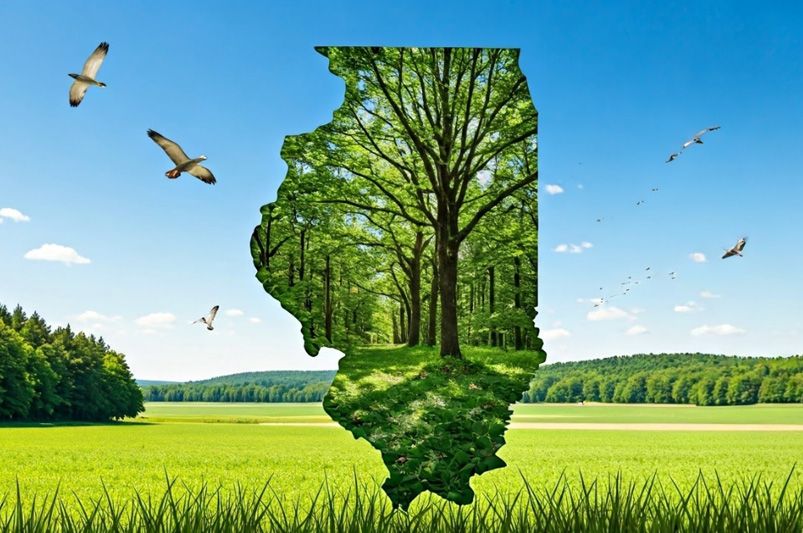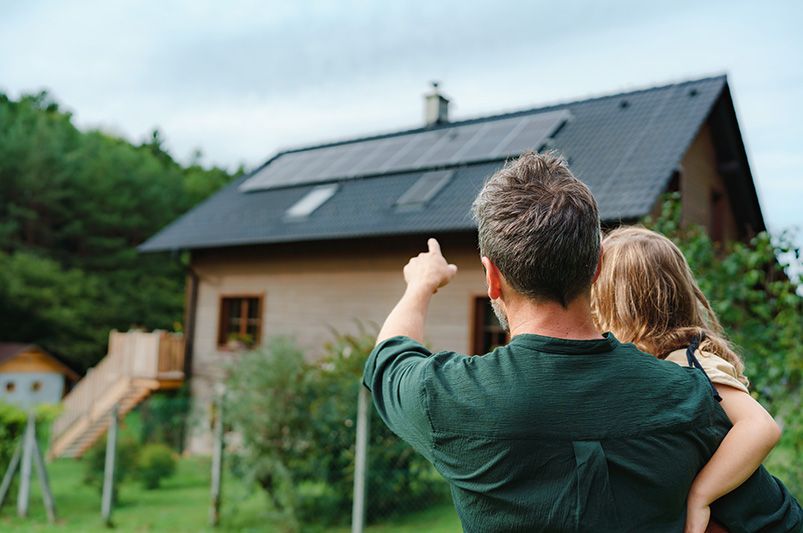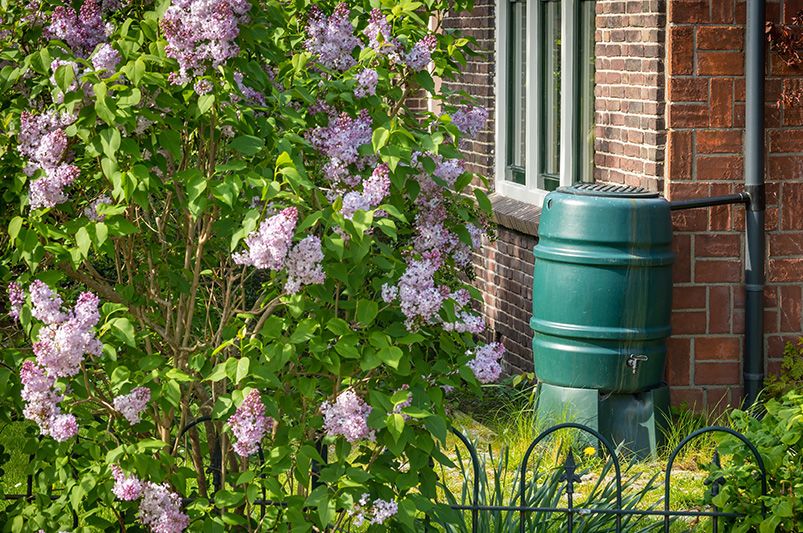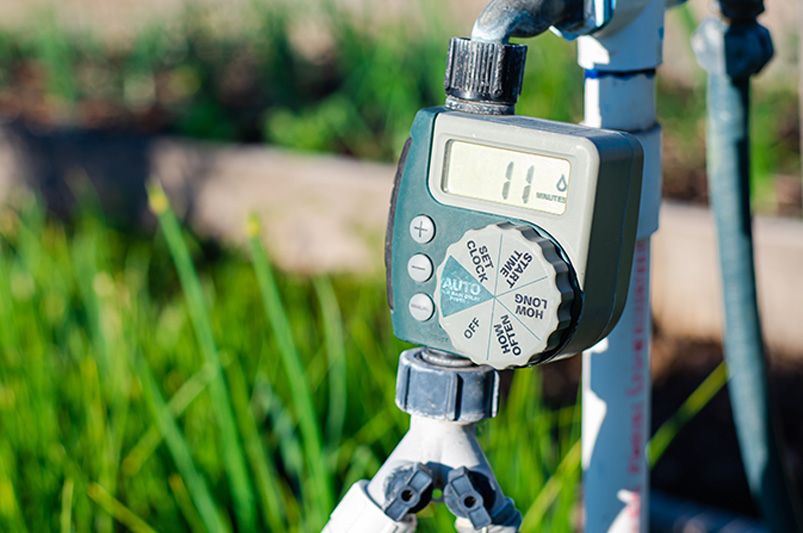
Illinois Conservation Sustainability Rebates Explained
Published: 16/11/2024 | Updated: 14/11/2024
Key Highlights
- Illinois offers a variety of conservation sustainability rebates for landowners.
- Rebates are available for projects related to solar energy, water conservation, and land management.
- The Illinois EPA administers many of these rebate programs to promote environmental stewardship.
- Eligibility criteria and rebate amounts vary depending on the specific program.
- Applying for these rebates is typically a straightforward process, with guidance available online.
Introduction
As Illinois works to create a more sustainable future, the state is putting more money into renewable energy and energy-saving projects. The Illinois EPA is important in this work. They manage programs that aim to lower the state's use of fossil fuels and support environmental care. One of these programs gives Illinois conservation sustainability rebates. These rebates help landowners and agricultural producers who follow good conservation practices by providing them with financial rewards.


Understanding Illinois Conservation Sustainability Rebates
Illinois conservation sustainability rebates are financial help for people and groups who are working on renewable energy projects and conservation. They are designed to promote sustainable practices in different areas of the state. This financial aid reduces the costs of these projects, making it easier for more people to get involved.
With these rebates, Illinois supports environmental care by rewarding those who help meet the state's clean energy goals and conservation plans. These programs are good for the environment and they also help the economy by encouraging new ideas and creating jobs in renewable energy and conservation.

Overview of State-Specific Rebates and Incentives
Illinois offers a range of state-specific rebates and incentives for residents, businesses, and organizations looking to adopt renewable energy and energy-efficient technologies. These incentives vary in type and amount but commonly include tax credits for solar installations, rebates on energy-efficient appliances, and grants for larger renewable energy projects. Some programs may also offer low-interest loans for financing the purchase of renewable energy systems.
|
Rebate/Incentive |
Description |
Eligibility |
|
Illinois Solar Renewable Energy Credits (SRECs) |
Financial incentives for solar energy system owners |
Residential, commercial, and industrial customers of participating utilities |
|
Illinois Shines |
Provides rebates for solar energy systems |
Residential, commercial, non-profit, and public sector customers |
|
Energy Storage Rebate Program |
Offers rebates for residential and commercial customers who install energy storage systems |
Residential, commercial, and industrial customers |
The Importance of Conservation Efforts in Illinois
Conservation efforts are very important in Illinois. They help both people and the environment. This state has a lot of agriculture, so it is key to keep the soil healthy and the water clean. When farmers use conservation practices, they help improve air quality by cutting down dust and reducing greenhouse gas emissions. In addition, good water management in both farming and city areas protects water quality in rivers and streams across Illinois.
Beyond this, saving wildlife habitat is a key part of conservation in Illinois. By protecting and restoring natural areas, the state can give homes to many kinds of plants and animals. This work includes restoring wetlands, planting trees, and managing grasslands. All of these actions lead to a healthier and livelier ecosystem.
Illinois understands that its natural resources are very valuable. The state keeps focusing on conservation to help build a better future. By supporting these efforts, Illinois aims to create a sustainable world for future generations.

Key Components of the Illinois Conservation Rebate Program
The Illinois Conservation Rebate Program is a team effort. Various state agencies and groups work together to support conservation activities throughout the state. This program offers financial help to get private landowners and agricultural producers to use sustainable practices. By doing this, the program wants to save natural resources, lower environmental harm, and improve Illinois's landscape.
The program covers important areas like water quality, soil health, and wildlife habitat. This shows Illinois's promise to protect the environment and take care of the land responsibly.
Eligibility Criteria for Applicants
To get the benefits from the Illinois Conservation Rebate Program, applicants must follow certain rules. These rules help target projects that fit the state’s conservation needs. The exact requirements can change based on the program and the type of project, but some general points are often the same.
For example, applicants usually need to live in Illinois or own land where the project will take place. The program aims at natural resource issues. Projects might include improving water quality, cutting down soil erosion, boosting wildlife habitat, or using renewable energy systems.
It's also a good idea to ask for technical assistance from your local NRCS office while applying. Conservation planners there can help with project eligibility, the right conservation practices, and the necessary paperwork. Their advice can make the application process much easier and more successful.
Types of Rebates Available: Solar, Water, and Land
The Illinois Conservation Rebate Program has many rebates to encourage eco-friendly practices in different areas. If you are thinking about renewable energy systems, solar rebates can help lower the cost of putting up solar panels on homes, farms, or businesses. These rebates help people use clean energy and reduce dependence on fossil fuels.
Water conservation is another important focus of the program. It gives rebates for projects that save water. This is especially helpful in agriculture, where upgrading irrigation systems or using rainwater can save a lot of water. The program also offers land management rebates. These focus on practices that improve soil health, water quality, and restore wetland areas.
Here are some important types of rebates:
- Solar Rebates: Helping with the cost of solar panels and related equipment
- Water Conservation Rebates: Supporting efficient irrigation systems, rainwater collection, and water-saving technologies
- Land Management Rebates: Encouraging cover crops, no-till farming, and other conservation practices; supporting wetland restoration and buffer areas

How to Apply for Illinois Conservation Rebates
Applying for Illinois Conservation Rebates is a simple process open to everyone. First, you need to collect important information and documents for your project. This can include details like where the project will be, its size, and what it will involve. You may also need any permits or approvals linked to it.
After you’ve got this information ready, it’s a good idea to contact the agency or organization that manages the rebate program. They can guide you on how to apply. They will also provide forms and answer questions about eligibility or other requirements.
Step-by-Step Application Process
Navigating the application process for Illinois Conservation Rebates has several important steps. These steps help keep everything organized and clear. It usually starts with a meeting with a conservation planner from the agency involved. In this meeting, you can talk about your project and find out if it is eligible.
After this meeting, you will need to submit a formal application package. This package should have detailed descriptions of your project and needed documents, like maps and site plans. You may also need to include permits or approvals. The Illinois government has online platforms that can help make this easier.
A key part of the application process is a site visit. A representative from the agency will come to see the project for themselves. They may collect more information, check project details, and make sure everything follows the program rules.
Required Documents and Information
When you apply for Illinois Conservation Rebates, you need to gather certain documents and information. This is important for your application to be complete and processed smoothly. For instance, the Environmental Quality Incentives Program (EQIP) usually asks for proof of land ownership or a valid lease. This shows that you control the property you want to use for the conservation project.
You also need a current farm number. This number connects your farming operation with the USDA’s Farm Service Agency. You usually need to have a farm number before you can join any USDA-funded conservation programs.
Lastly, you will need to provide a recent income statement or tax documents. This helps check if you meet the adjusted gross income requirements for specific conservation programs.
Conclusion
In closing, using Illinois Conservation Sustainability Rebates can help both the environment and your wallet. When you take advantage of these state incentives and rebates, you help with conservation and save money on solar, water, and land projects. It is important to check if you are eligible before you apply. Make sure you follow the application process and provide the needed documents for a smooth refund request. Your support for these conservation projects helps build a better future for Illinois. Please share this helpful information on social media to spread the word and inspire others to join these important efforts.
Frequently Asked Questions
What conservation projects are eligible for rebates in Illinois?
Rebates in Illinois help fund different conservation projects. Many of these projects work with agricultural producers. They support them in applying conservation practices on their agricultural operations. These practices are designed to create cleaner water, healthier soil, and better wildlife habitat.
Need Assistance for a Sustainable Landscape Makeover?
Shrubhub’s sustainable landscape design packages can significantly transform the lives of homeowners by delivering customized, professional landscaping plans tailored to their unique space and personal style. With the ease of online collaboration, you are guided step-by-step through a design process that fundamentally reshapes your outdoor environment. The result is an aesthetically pleasing and functional outdoor living area that maximizes the potential of your property.


